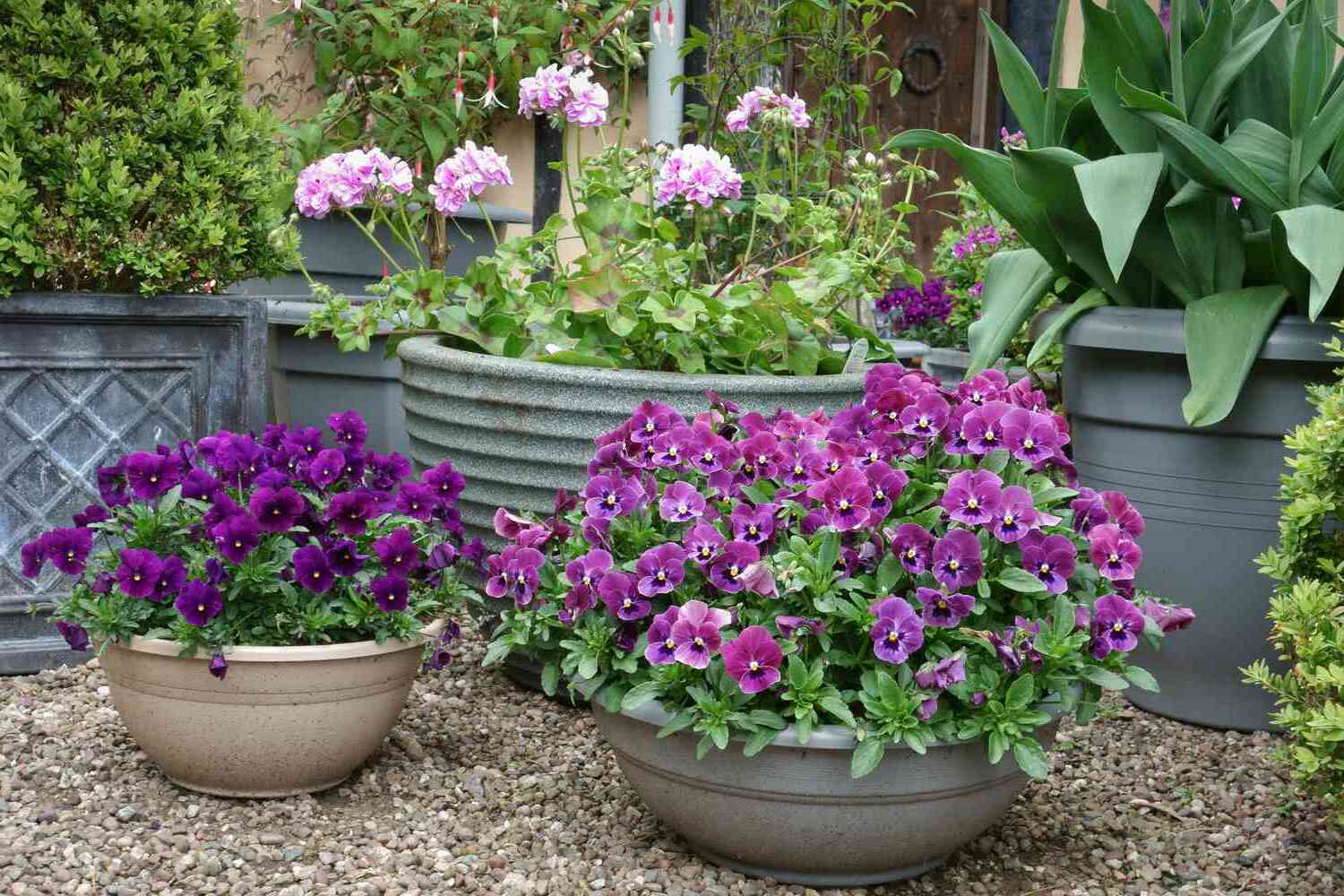
Container gardening is a fantastic way to grow plants in small spaces. Whether you live in an apartment or have limited yard space, this method allows you to enjoy gardening without needing a large plot of land. Did you know that container gardening can be done with almost any type of container? From old buckets to fancy pots, the possibilities are endless. One of the best parts is that you can move your plants around to catch the best sunlight or protect them from harsh weather. Plus, it's easier to control soil quality and moisture levels. Ready to learn more? Here are 30 amazing facts about container gardening that will inspire you to start your own mini garden today!
Benefits of Container Gardening
Container gardening offers a unique way to grow plants, especially in small spaces. It's perfect for urban dwellers or anyone looking to add some greenery to their environment.
- Space-Saving: Container gardening allows you to grow plants in small areas like balconies, patios, or even windowsills.
- Mobility: You can move containers around to catch the best sunlight or protect plants from harsh weather.
- Pest Control: Containers can be elevated or placed in areas less accessible to pests.
- Soil Control: You have complete control over the soil quality, ensuring optimal conditions for your plants.
- Water Efficiency: Containers often require less water than traditional gardens, making them more eco-friendly.
Types of Plants for Container Gardening
Not all plants thrive in containers, but many do exceptionally well. Here are some popular choices.
- Herbs: Basil, mint, and rosemary are perfect for containers and can be kept indoors or outdoors.
- Vegetables: Tomatoes, peppers, and lettuce grow well in pots.
- Flowers: Petunias, marigolds, and geraniums add color and beauty to any space.
- Fruits: Strawberries and dwarf citrus trees can be grown in containers.
- Succulents: These low-maintenance plants are ideal for containers and require minimal watering.
Choosing the Right Containers
The type of container you use can significantly impact your gardening success. Here’s what to consider.
- Size: Larger containers hold more soil, which retains moisture longer and supports bigger plants.
- Material: Containers come in various materials like plastic, clay, and wood. Each has its pros and cons.
- Drainage: Ensure your container has drainage holes to prevent waterlogging.
- Weight: Consider the weight of the container, especially if you plan to move it around.
- Aesthetics: Choose containers that complement your home decor or garden theme.
Soil and Fertilizer for Container Gardening
The right soil and fertilizer are crucial for healthy plants. Here’s what you need to know.
- Potting Mix: Use a high-quality potting mix rather than garden soil, which can be too dense.
- Organic Matter: Adding compost or organic matter improves soil structure and fertility.
- Fertilizer: Use slow-release fertilizers or liquid fertilizers to provide essential nutrients.
- pH Levels: Different plants require different pH levels. Test your soil and adjust accordingly.
- Mulching: Mulch helps retain moisture and suppress weeds in your containers.
Watering Techniques for Container Gardening
Proper watering is essential for container gardening success. Here are some tips.
- Consistency: Water your plants consistently, as containers dry out faster than garden beds.
- Deep Watering: Ensure water reaches the root zone by watering deeply.
- Self-Watering Containers: These containers have a reservoir that provides a steady water supply.
- Watering Schedule: Adjust your watering schedule based on the season and plant needs.
- Avoid Overwatering: Too much water can lead to root rot. Check soil moisture before watering.
Common Challenges in Container Gardening
Container gardening comes with its own set of challenges. Here’s how to tackle them.
- Root Bound: Plants can become root-bound in containers. Repot them into larger containers when needed.
- Nutrient Deficiency: Containers can deplete nutrients quickly. Regularly fertilize your plants.
- Temperature Fluctuations: Containers can heat up or cool down faster than garden beds. Protect your plants accordingly.
- Water Drainage: Poor drainage can lead to waterlogged soil. Ensure proper drainage holes.
- Pest Management: Keep an eye out for pests and treat them promptly to prevent infestations.
Container Gardening: A Green Thumb's Delight
Container gardening offers a fantastic way to grow plants in limited spaces. Whether you live in a city apartment or have a small backyard, you can enjoy fresh herbs, vibrant flowers, and even vegetables. It's easy to start, requires minimal investment, and can be tailored to fit your lifestyle. Plus, you can move containers around to catch the best sunlight or create a new look.
Using containers also helps control soil quality and reduces the risk of pests. You can experiment with different plants and arrangements without committing to a permanent garden layout. It's perfect for beginners and seasoned gardeners alike.
So, grab some pots, soil, and seeds, and get planting. You'll be amazed at how much joy and satisfaction container gardening can bring. Happy gardening!
Was this page helpful?
Our commitment to delivering trustworthy and engaging content is at the heart of what we do. Each fact on our site is contributed by real users like you, bringing a wealth of diverse insights and information. To ensure the highest standards of accuracy and reliability, our dedicated editors meticulously review each submission. This process guarantees that the facts we share are not only fascinating but also credible. Trust in our commitment to quality and authenticity as you explore and learn with us.


